Is Collagen Good for Hair? Discover the Benefits and Truths
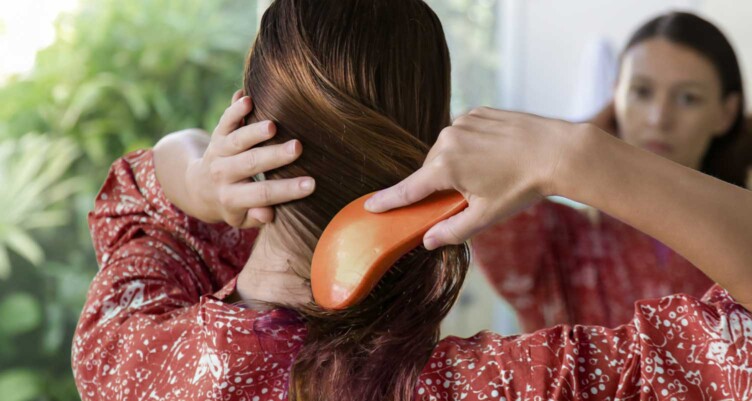
- Collagen is the body’s primary form of protein. It provides strength and structure to the skin, bones, tendons, cartilage and joints.
- Collagen may enhance hair health by strengthening the hair shaft, preventing breakage and hair loss and hydrating the scalp.
- There are many ways to increase collagen, such as by taking collagen supplements and eating collagen-rich foods.
Regarding beauty supplements, collagen peptides are a cut above the rest. Collagen peptides are highly absorbable forms of collagen, the body’s most abundant protein. In recent years, the effects of collagen on the skin have been studied. Research has found that collagen may help prevent wrinkles by keeping the skin firm, elastic and hydrated.
But the beauty benefits of collagen don’t stop there. Collagen peptides may strengthen brittle locks and prevent split ends. It may also hydrate a dry scalp. Here, we get to the root of whether collagen provides salon-quality results at home.
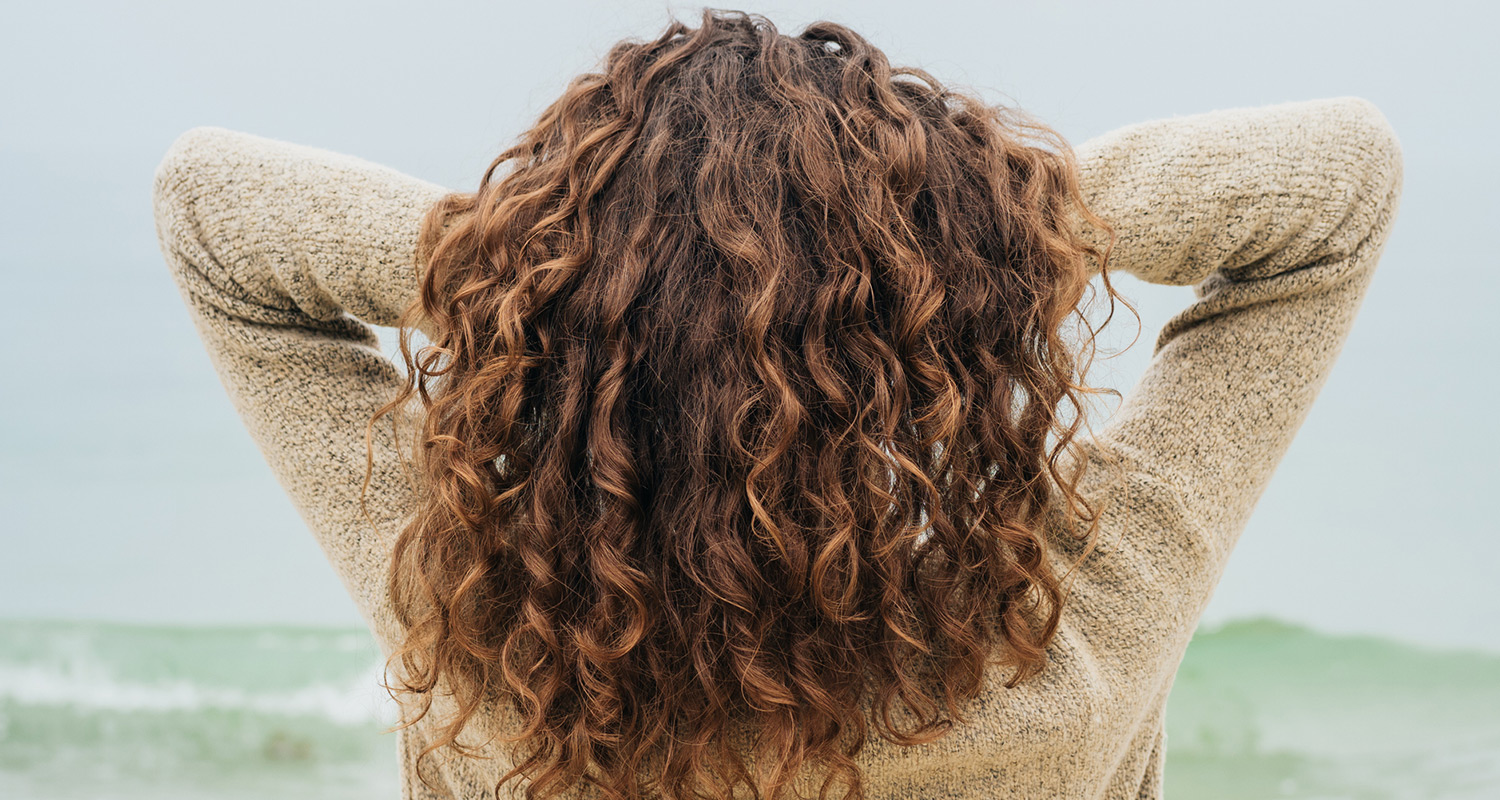
What Is Collagen?
Collagen is the most abundant protein in your body, and it’s responsible for providing structure and support. The fiber-like structure is found in the skin, connective tissue, bone and cartilage.[1]
The body naturally produces collagen. But every person’s collagen bank starts to dwindle during their mid-to-late twenties. When collagen production drops dramatically, it’s difficult for the body to make more. Signs of collagen loss include skin wrinkles due to reduced elasticity and joint issues such as stiffness.
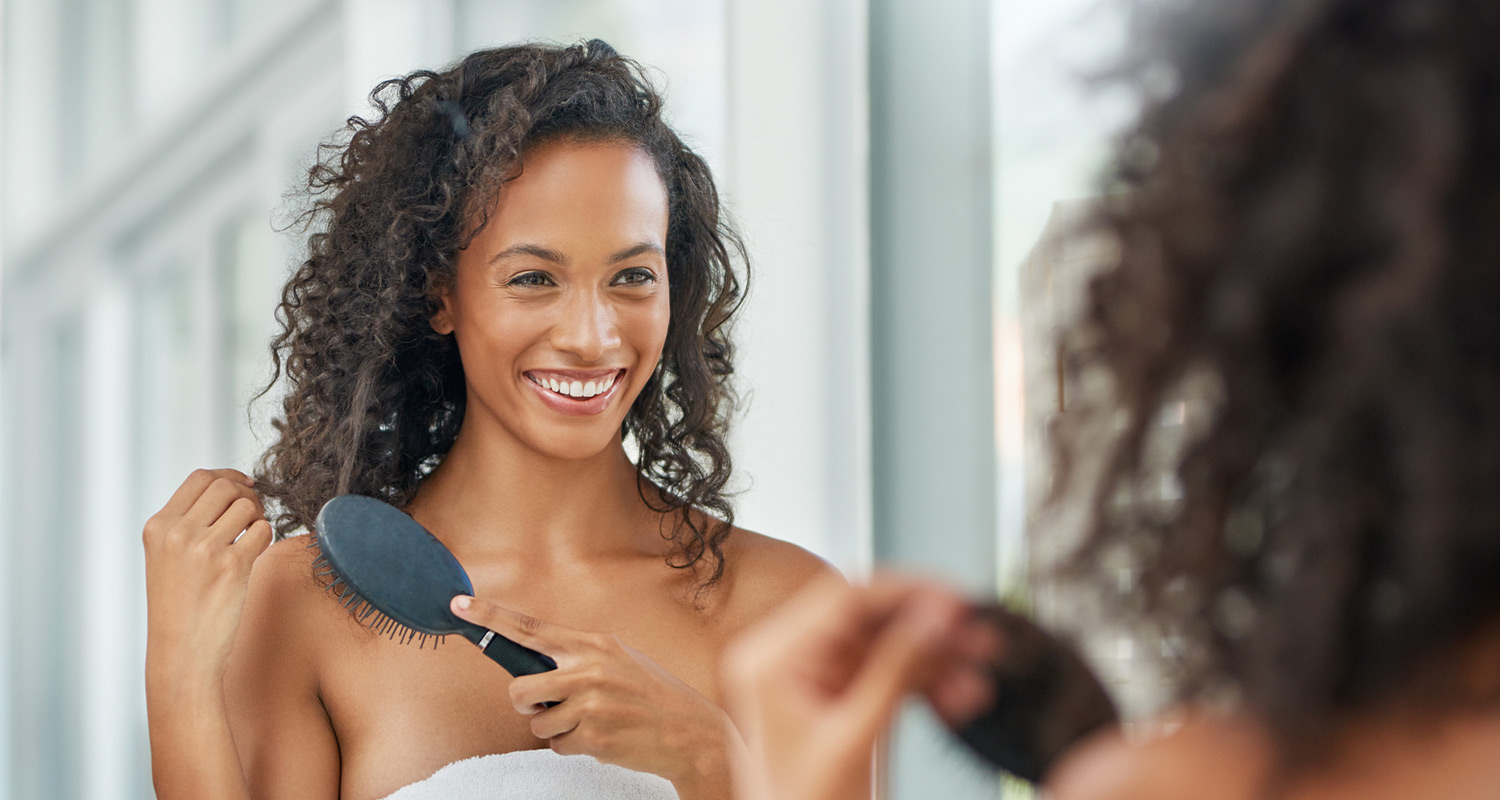
Collagen Benefits
When collagen levels are high, the body benefits in several ways. This includes:
- Firm and hydrated skin
- Healthy hair and nails
- Strong bones
- Increased muscle mass
- Healthier joints
H2 Collagen Benefits for Hair
Collagen is sometimes dubbed the “fountain of youth” for its benefits on the skin. But is collagen good for the hair? Here’s a look at the purported benefits:
Collagen may strengthen the hair shaft: Ever wondered what hair is made of? It’s keratin, a tough protein that keeps the strands strong and protected against damage. This explains why keratin hair treatments are available. Collagen helps strengthen the hair by making up keratin, the protein that forms the hair.[2]
Collagen may prevent hair damage: Searching for and buying hair growth products? Try collagen instead. As an antioxidant, collagen can fight damage from free radicals. Free radicals are compounds that can cause damage to the body. They are produced due to stress, UV rays, pollution and smoking.[3] When free radicals damage hair follicles, they can cause weak strands that are susceptible to breakage and trigger hair loss.[4] More research is needed to confirm collagen’s benefits in preventing hair loss.
Types of Collagens
There are 28 known types of collagens. The most prevalent types are type I, type II and type III:
- Type I is the most common type, accounting for 90 percent of the body’s collagen. It is found primarily in the skin, bones, tendons and ligaments.[5]
- Type II collagen is found in joints. It’s often used in collagen supplements that reduce inflammation and provide cartilage repair.[6]
- Type III collagen is the second most abundant type and is found in the skin, blood vessels and uterine system.[7]
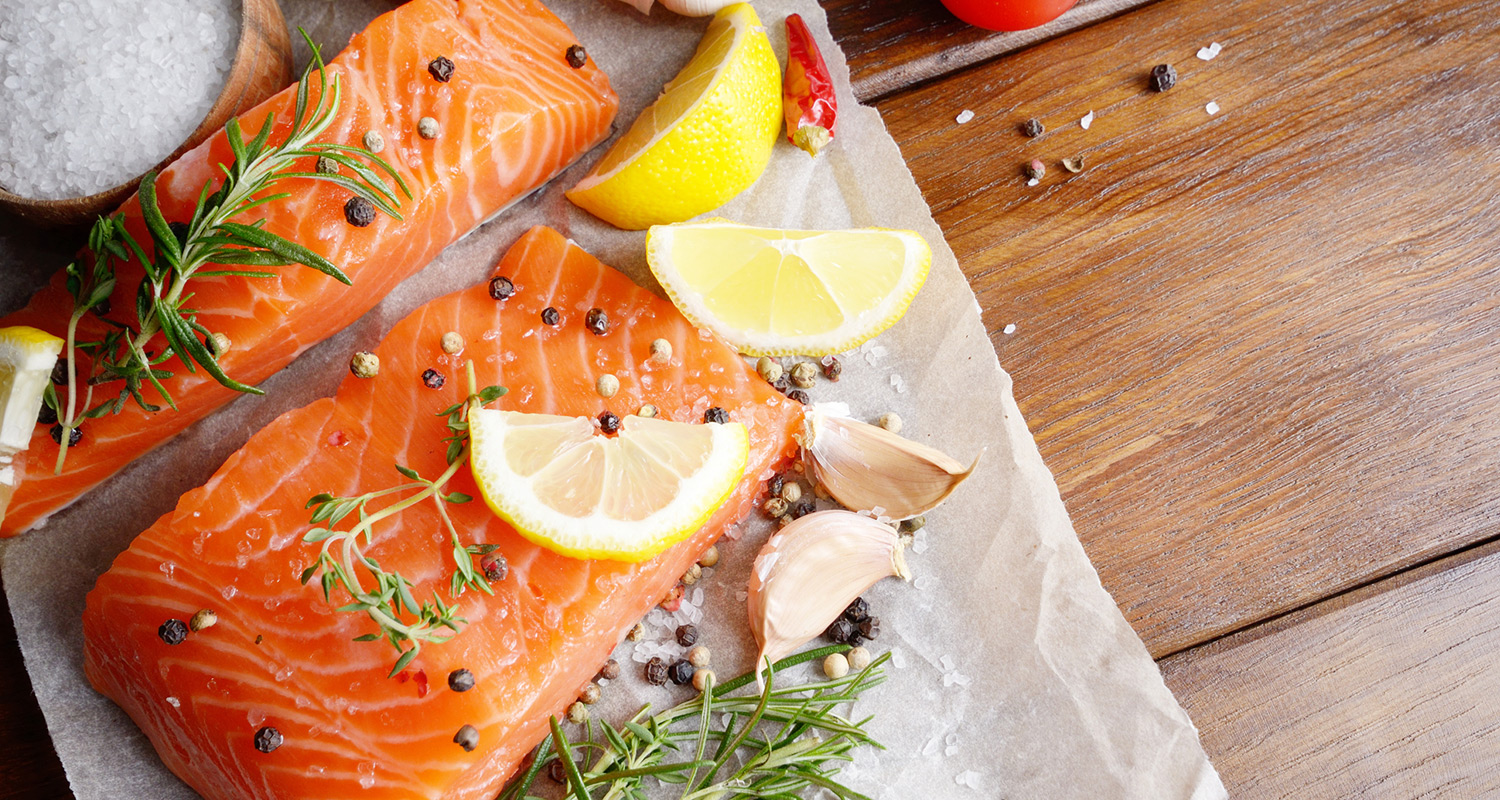
Collagen in Food
This coveted protein is naturally present in various foods, especially chicken, beef and seafood. This mainly includes meat and fish cuts with many connective tissues.
Check out these fantastic foods that are packed with collagen:[8]
- Bone and pork broth
- Chicken skin
- Beef
- Salmon
- Sardines
Don’t eat meat? The bad news is that plant-based foods don’t contain collagen. The good news? There are ways to get around this collagen deficit, such as eating more berries, citrus fruits and broccoli. These tasty options all contain hefty amounts of vitamin C, which may help with collagen production.[9]
Collagen Supplements
If chewing on animal cartilage for collagen is too much, enter collagen supplements. Collagen peptides, or hydrolyzed collagen, take the animal protein and break it down into smaller pieces in hydrolysis. This makes it easier (and more appetizing) for the body to absorb.
Collagen supplements are available in several forms, such as collagen powder and liquid collagen.
If you’re torn between liquid collagen vs collagen powder, here are the differences to help you decide:
- Liquid collagen contains collagen proteins suspended in liquid. It is hydrolyzed, which means that the peptides it contains are broken down into smaller pieces, making it easier for the body to absorb.
- Collagen powder is collagen in fine powder form. It also contains hydrolyzed collagen. The best collagen powder is ethically and sustainably sourced. Try a wide selection of collagen peptides for the best collagen supplements.
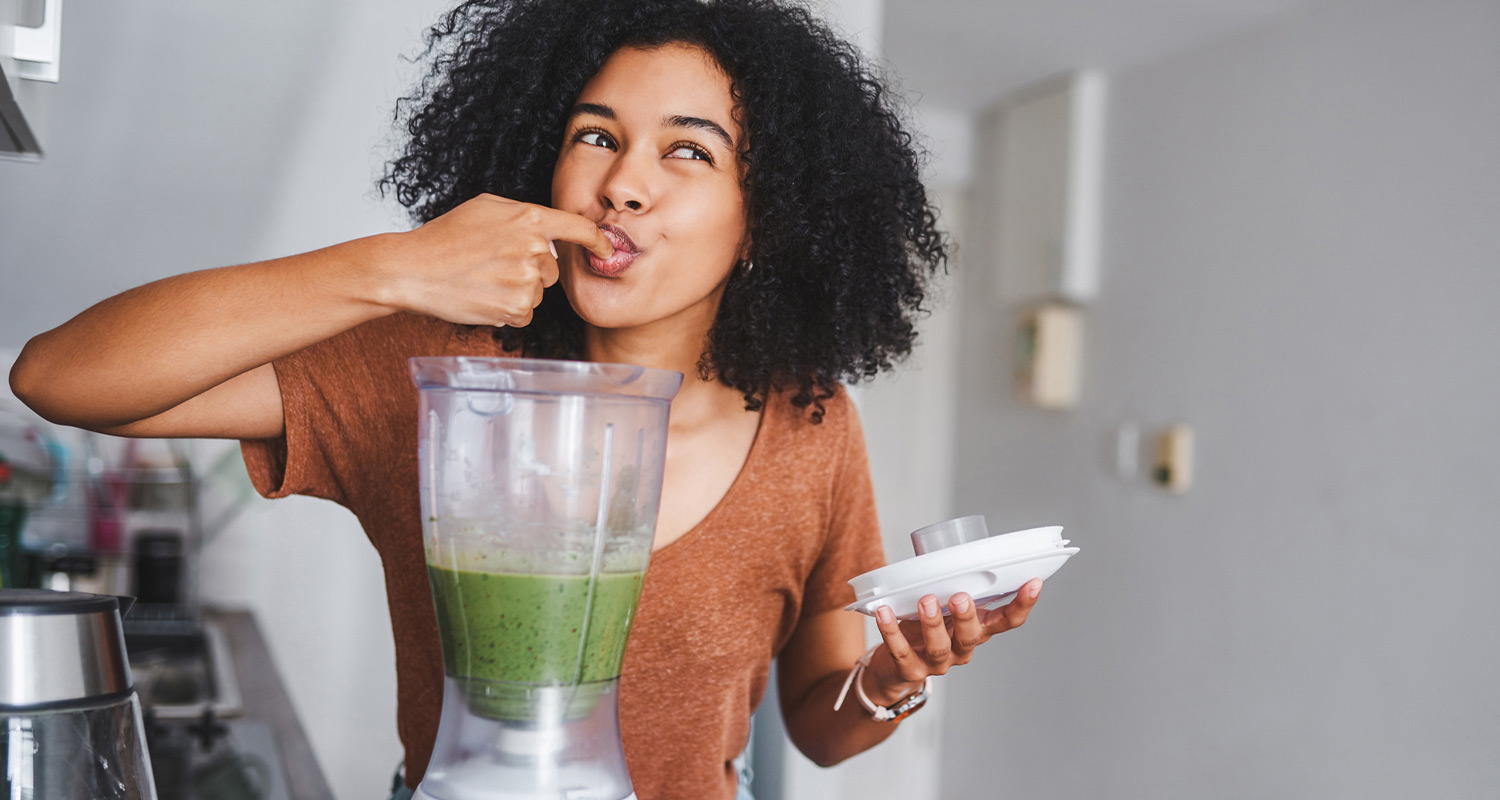
How to Increase Collagen
Eager to stop collagen loss in its tracks? Here are some easy ways to increase collagen in your everyday life. This also includes some tips for taking collagen peptides.
- Take collagen supplements: Collagen supplements help with increasing the body’s dwindling supply of collagen. They come in innumerable options, such as powder, liquid, capsules, gummies and protein bars.
- Apply retinoids: Retinoids and retinol (a subtype of retinoids) are renowned for their anti-aging abilities. A lot of this has to do with their ability to stimulate cells that produce collagen.[10]
- Eat collagen-rich foods: Besides fish, chicken and beef, incorporate collagen foods into your diet, such as a Collagen Protein Bar. Each bar has 11 grams of protein and collagen protein sourced from grass-fed cows. It’s gluten-free, dairy-free and non-GMO. Choose one of the four delicious flavors for a healthy, convenient snack.
- Eat more vitamin C: Vitamin C does more than boost the immune system. It’s also essential for collagen production. Since the body can’t make vitamin C, it must be consumed through our diets. Vitamin C foods include many fruits and veggies, such as oranges, grapefruits, red peppers, broccoli, berries and sweet potatoes.
- Add collagen to your coffee: Collagen in coffee is a clever way to sneak more collagen into your diet. Since collagen powder is usually flavorless, you won’t notice the taste. Bonus: It easily dissolves without clumps. Brew up something delicious and rewarding with The Original + Collagen Coffee Pods. These Keurig-compatible pods are enhanced with 5 grams of unflavored collagen protein.
Collagen provides the body with structure and support. It’s what keeps the skin firm, plump and elastic. When it comes to hair, collagen helps make up proteins and keratin that form hair.[11] This may benefit the hair by strengthening the hair shaft and preventing hair loss. However, more research is needed to explore these benefits.
Consuming collagen supplements for hair health can be done in various ways to ensure maximum absorption and effectiveness. Mix collagen powder into your morning coffee, smoothie or any beverage. Incorporate collagen-rich foods into your daily diet or take collagen supplements consistently for maximum benefits to your hair.
Sign up for early access to sales, product launches, the latest Bulletproof news and more!



